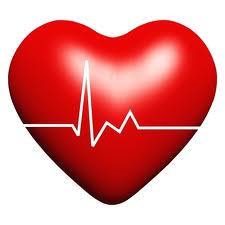Want a healthy heart? Check out these cardio boosting healthiest foods
 You must probably know that what you eat (or drink) throughout the day can keep your ticker in tip-top shape. And if your idea of a heart-healthy diet looks like a buffet of tasteless steamed veggies and bland white fish, here’s a list of hearty foods that will spark your meals.
You must probably know that what you eat (or drink) throughout the day can keep your ticker in tip-top shape. And if your idea of a heart-healthy diet looks like a buffet of tasteless steamed veggies and bland white fish, here’s a list of hearty foods that will spark your meals.
Bananas
This fruit is packed with potassium; a mineral which helps your heart beat healthily. If you suffer from hypertension, making sure to get enough dietary potassium can help lower your systolic blood pressure (the top number) by more than 10 points! That’s because having adequate blood levels of potassium makes the body more efficient at excreting sodium — too much sodium causes the body to retain excess water leading to an increase in blood pressure.
Beans
A 2012 study showed that eating legumes at least 4 times a week helped lower blood pressure and reduce risks for coronary heart disease by 22%1. How? Well, beans (like chickpeas, lentils, garbanzo, navy, red, white, black and kidney beans) are nutritional powerhouses: they are loaded with soluble fiber, calcium, magnesium and potassium. Soluble fiber has been shown to help the body increase bile acid excretion, which in turn increases bile acid synthesis and reduces circulating levels of cholesterol. And adequate intake of dietary magnesium, which is needed for healthy blood flow, has been linked to a decreased risk of sudden cardiac death.
Berries
Blueberries contain a chock-full of fiber, vitamin C, folate, calcium, magnesium, potassium and various antioxidants which offer colorful heart-protection by helping to lower bad LDL-cholesterol levels and blood pressure2. And raspberries are rich in ketones that may prevent ncrease in overall body fat and visceral fat, two factors that amplify the risks of cardiovascular complications.
Green leafy vegetables
Okay, all veggies are heart healthy but green leafy veggies like broccoli, spinach, asparagus and bok choy may be more effective at preventing heart disease. In a study, 84,251 women and 42,148 men were followed for 14 and 8 years respectively. Researchers found that consuming at least 1 serving of green leafy vegetables was associated with the highest decrease (23%) in cardiovascular risk3.
Oats
A daily bowl of hot oatmeal can work its cardio-protective magic in many ways. Oats are great sources of beta-glucans, a type of viscous soluble fiber that reduces total and LDL-cholesterol levels4. Moreover, a 2006 study investigating the phytonutrient avenanthramide in oats found that this antioxidant worked synergistically with vitamin C to halt the initiation and development of atherosclerosis5 — the hardening of arteries that can cause heart attacks. Plus oats are rich in potassium, magnesium, niacin and calcium. Don’t like oatmeal? Add rolled oats to your smoothies or use oat flour instead of all-purpose flour in your pancakes. Pick coarse or steel-cut oats instead of instant varieties which contain less fiber.
Salmon
Oily fish like salmon, tuna, herring, sardines and mackerel can give a healthy boost to your ticker. These fish (particularly the wild types) are rich in omega-3 fatty acids shown to reduce blood pressure and keep strokes at bay. Plus, they are loaded with astaxanthin, an antioxidant with anti-inflammatory properties — this carotenoid may thus protect against atherosclerosis6.
There are many more heart-healthy foods so make sure to enjoy a varied, balanced diet to catch all the cardio-protective nutrients!
REFERENCES
1. Bazzano LA, He J, Ogden LG, et al. (2001) Legume Consumption and Risk of Coronary Heart Disease in US Men and Women: NHANES I Epidemiologic Follow-up Study. Arch Intern Med. 161(21):2573-2578.
2. Kalt W, Foote K, Fillmore SA, et al. (2008) Effect of blueberry feeding on plasma lipids in pigs. Br J Nutr. 100(1):70-8.
3. Joshipura KJ, Hu FB, Manson JE, Stampfer MJ, Rimm EB, Speizer FE, Colditz G, Ascherio A, Rosner B, Spiegelman D, Willett WC. (2001) The effect of fruit and vegetable intake on risk for coronary heart disease. Ann Intern Med. 134(12):1106-14.
4. Andon MB, Anderson JW. (2008) State of the art reviews: The oatmeal- cholesterol connection: 10 years later. Am J Lifestyle Med.:2(1):51-57.
5. Nie L, Wise ML, Peterson DM, Meydani M. (2006) Avenanthramide, a polyphenol from oats, inhibits vascular smooth muscle cell proliferation and enhances nitric oxide production. Atherosclerosis 186(2):260-6.
6. Fassett RG and Coombes JS (2011) Astaxanthin: A Potential Therapeutic Agent in Cardiovascular Disease. Mar Drugs 9(3): 447–465.

 Not Sure What Healthy Foods To Eat?
Not Sure What Healthy Foods To Eat? This week we take a look at one of my favorite healthy foods...the mighty Avocado.
This week we take a look at one of my favorite healthy foods...the mighty Avocado.
Comments are closed.